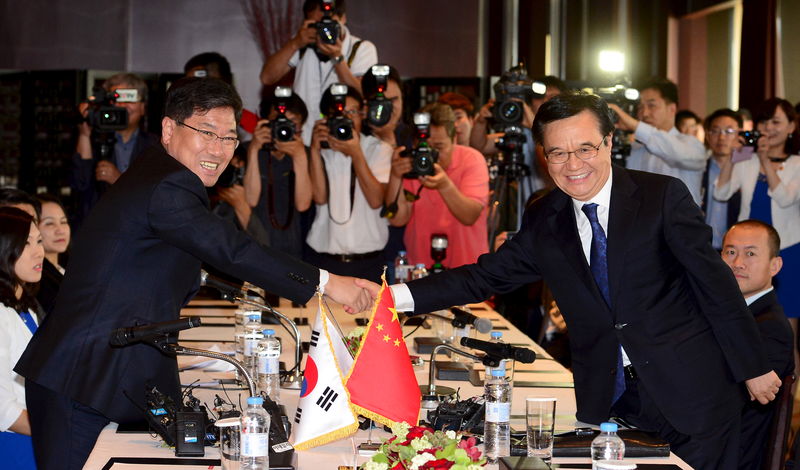SEOUL (Reuters) - China and South Korea signed on Monday a deal to slash trade barriers between them, including tariffs on goods produced in a North Korean factory park run jointly with the South, South Korea's Trade Ministry said.
In all, 310 products made at the Kaesong industrial zone, just north of the border between North and South Korea, will benefit from the free-trade agreement.
Many South Korean factories have set up operations in Kaesong to take advantage of cheap North Korean labour. Most of the products covered by the trade pact are clothing and electrical components.
China and South Korea spent three years negotiating their free trade agreement. Products made at Kaesong were not included in tariff cuts under South Korea's free trade agreements with the United States and the European Union.
Woo Tae-hee, South Korea's assistant minister for trade and chief free-trade negotiator, said it was hoped the agreement with China would lead to more industrial zones like Kaesong along the border with North Korea.
"We think this can contribute to the peace of the Korean peninsula," Woo told reporters after the signing ceremony.
China and South Korea normalised diplomatic relations in 1992 and bilateral trade grew 37-fold to $235.4 billion (£154.55 billion) in 2014 from $6.4 billion in 1992, South Korean data shows.
The deal does not include rice and automobiles, areas where South Korea was worried about Chinese goods flooding its market.
China is the world's largest exporter and also South Korea's biggest trading partner. South Korea is one of the few developed countries that runs a surplus with China - to the tune of $55 billion in 2014 according to Seoul - thanks to exports of cars, smartphones, flat screen TVs, semiconductors and petrochemicals.
The two Koreas remain technically at war after their 1950-53 war ended in a truce. China is involved in six-country talks that include the United States, aimed at easing tension over the North's nuclear ambitions.

The talks have been stalled since 2008.